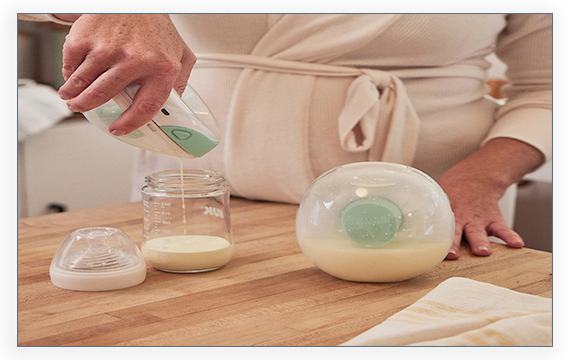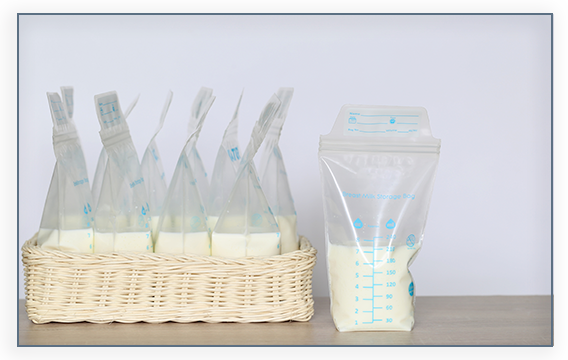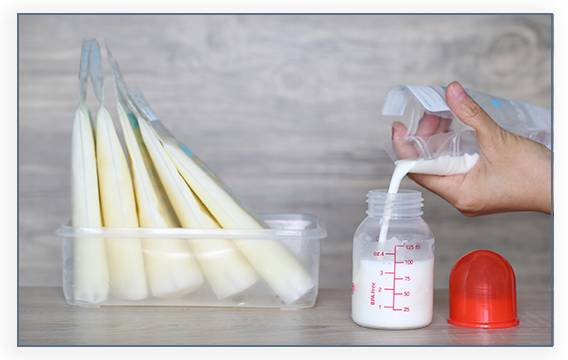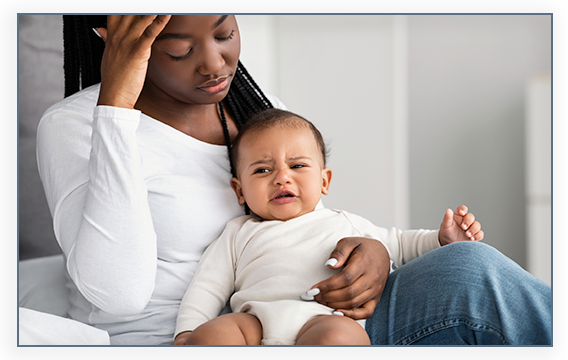How Much Should My Baby Be Eating?
You may see different recommendations based on whether you choose to breastfeed or formula feed your baby. The most important thing to remember is that your baby’s feeding needs are unique.
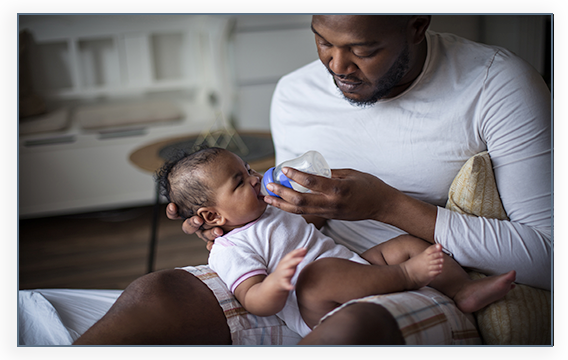
First few days: Your baby may want to eat as often as every 1- 3 hours. Frequent feeding help increase your milk supply and give your baby breastfeeding/bottle feeding practice. As your baby grows, his/her belly also grows, allowing him/her to eat more during each feed. Babies might only take in a half ounce per feeding for the first day or two, but after that will usually drink 1- 2 oz. per feeding.
After the first few days: Your formula-fed newborn will take about 2- 3 oz. of formula per feeding and will eat every 3-4 hours on average. Newborn babies should breastfeed and/or bottle feed on demand; as time passes and you learn your child’s needs, you can start begin routine-based feedings.
Two months old: Babies usually take 4- 5 oz. per feeding every 3- 4 hours.
Four months old: Babies usually take 4- 6 oz. per feeding.
Six months old: Babies will consume about 6- 8 oz. at each feeding totaling 4-5 feedings per day. Baby should drink no more than 32 oz. of formula in 24 hours. Some babies may just want to suck on a pacifier after feeding.
Have more questions? Listen to our FREE podcast!
LISTEN NOWHow do I know if my baby is hungry?
• Moving head from side-to-side
• Opening mouth
• Sticking out tongue
• Placing hands, fingers, and fists to mouth
• Puckering lips, as if to nurse
• Nuzzling against breasts
• Showing rooting reflex (when a baby moves its mouth in the direction of something that’s stroking or touching its cheek)
• Crying
How do I know if my baby is eating enough?
You can tell if your baby is getting enough to eat by the number of wet and dirty diapers he/she has in a day and based on appropriate weight gain.
From birth- 3 months old, a baby will usually gain up to 1 oz. of weight each day. Although it is normal for your baby to lose a small amount of weight after birth; 7-10% of body weight lost is usually acceptable. Your baby’s doctor will check his/her weight at the first post-birth visit.
Follow your doctor’s recommendation regarding frequency of appointments so baby can be weighed and measured as needed. He/she should see the doctor for a checkup three- five days after birth and then again at 2- 3 weeks old.
Most babies will double their birth weight by 5 months of age and triple their birth weight by their first birthday. If your baby is having trouble gaining weight, don’t wait too long between feedings, even if it means waking him/her up. Always discuss how often and how much to feed your baby based on his/her growth with your pediatrician.
The information contained here within is not intended to be a substitute for professional medical advice, diagnosis, or treatment. Always seek the advice of your physician or other qualified health provider with any questions you may have regarding a medical condition. Never disregard professional medical advice or delay in seeking it because of something you have read. If you think you may have a medical emergency, call your doctor, go to the emergency department, or call 911 immediately. Edwards Health Care Services (EHCS) does not recommend or endorse any specific tests, physicians, products, procedures, opinions, or other information that may be mentioned here within. Reliance on any information provided by EHCS, EHCS employees, contracted writers, or medical professionals presenting content for publication here within is solely at your own risk.
Sources:
• https://www.womenshealth.gov/breastfeeding/learning-breastfeed/making-breastmilk
• https://www.healthychildren.org/English/ages-stages/baby/formula-feeding/Pages/Amount-and-Schedule-of-Formula-Feedings.aspx
• https://www.llli.org/breastfeeding-info/frequency-feeding-frequently-asked-questions-faqs/
• https://www.cdc.gov/nutrition/infantandtoddlernutrition/breastfeeding/how-much-and-how-often.html
Tags: Baby, Breastfeeding, Eating, Infant, Mom, Parenting, Schedule


